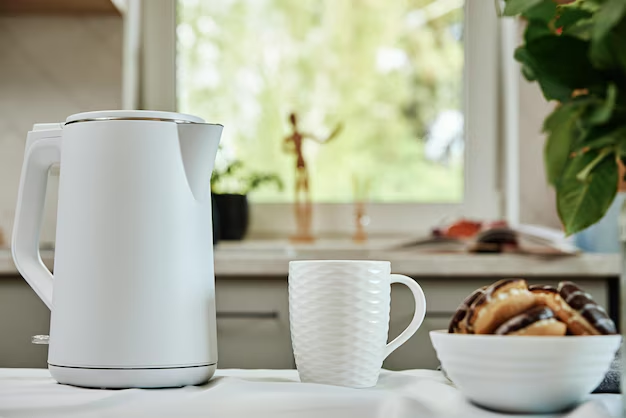How Long Does Tea Last in the Refrigerator? A Comprehensive Guide to Tea Storage
With a rich history interwoven into cultures worldwide, tea is a beloved beverage consumed in various forms—from a refreshing iced tea on a warm day to a comforting hot cup during chilly nights. However, like all consumables, tea does have its shelf life, particularly when stored in the refrigerator. Understanding how long tea lasts can be crucial for maintaining its flavor and ensuring safety. In this article, we'll explore this topic and offer strategies to extend the life of your stored tea.
Understanding Tea's Shelf Life
What Affects Tea's Longevity?
- Type of Tea: Different types of tea, such as black, green, or herbal, can have varying shelf lives based on their properties and processing methods.
- Preparation Method: How tea is brewed can impact its longevity. Strongly brewed tea generally lasts longer due to its higher concentration of preservatives like tannins.
- Storage Conditions: Temperature, exposure to light, and air significantly impact the freshness of tea. Refrigeration slows down decay but improper storage can shorten its life.
General Guidelines for Tea Storage
- Time Frame: Most brewed tea can last 3 to 5 days in the refrigerator. After this window, quality and flavor may start to degrade.
- Container: Use an airtight container to minimize exposure to air and contaminants. Glass or stainless steel containers are preferred over plastic as they do not impart odors.
- Avoid Flavor Dilution: Store without additives like milk or sugar, which can promote faster spoilage.
Best Practices for Storing Tea in the Refrigerator
Preparing Tea for Storage
- Cool Down: Allow hot tea to cool down to room temperature before refrigerating to prevent condensation, which can lead to diluted flavor and potential contamination.
- Use the Right Container: Choose containers that are non-reactive and airtight. This prevents the tea from absorbing odors from the fridge.
- Label the Container: Mark the storage date to keep track of freshness and ensure consumption within the recommended period.
Extending Freshness and Flavor
- Herbal and Green Teas: More delicate and best consumed within 2-3 days due to their light and fresh flavor profiles.
- Black and Oolong Teas: Tend to have a longer shelf life due to their robust flavors, making them suitable for up to 5 days in the fridge.
Potential Risks and Benefits
- Risk of Bacteria Growth: Storing tea for too long can lead to bacteria growth such as mold, impacting safety.
- Benefits of Chilled Tea: Refrigerated tea can offer a refreshing and different taste experience compared to freshly brewed tea.
Related Subtopics: Beyond Basic Tea Storage
Can Tea Go Bad?
While tea itself doesn’t spoil like dairy or meat, its quality significantly diminishes over time. Recognizing signs of spoilage is crucial to avoid an unpleasant or unsafe drinking experience:
- Off Odor: A sour or strange smell indicates spoilage.
- Change in Flavor: If it tastes sour or otherwise off, it’s best to discard it.
- Cloudiness: Unusual cloudiness may suggest microbial growth.
Creative Uses for Leftover Tea
Reduce waste by using leftover refrigerated tea in creative ways:
- Iced Tea Cubes: Freeze leftover tea into cubes to chill drinks without diluting flavor.
- Cooking: Use tea as a base for soups or marinades.
- Skincare: Brewed tea can be used as a natural toner or in baths for its antioxidant properties.
Exploring Alternatives: Can You Freeze Brewed Tea?
While freezing tea is an option, it's not commonly recommended due to texture changes and the potential loss of aromatic compounds:
- Freezing Considerations: Ice crystals can cause separation and flavor degradation.
- Best Practices: If freezing, use quickly to minimize quality loss, ideally within a month.
Visual Summary: Top Tips for Tea Storage in the Refrigerator 📝
- ⏳ Storage Time: Keep brewed tea in the fridge for 3-5 days to maintain optimal freshness.
- 🔒 Airtight Containers: Store tea in tightly sealed glass or stainless steel containers.
- 🗓️ Date Marking: Always label and date your tea to track its storage life.
- 🥄 Additives Alert: Avoid adding milk or sugar before storing to prevent spoilage.
- 👂 Smell Test: Discard if any off-odors or unusual flavors are detected.
- ❄️ Freezing Caution: Only freeze if necessary and use promptly.
Final Thoughts on Tea Storage
Whether you're a tea enthusiast savoring every cup or an occasional brew drinker, proper tea storage can make all the difference in flavor and safety. Storing tea in the refrigerator, with an understanding of its shelf life and preserving techniques, ensures every sip remains as satisfying as intended. Embrace these guidelines to maximize your tea experience, minimize waste, and explore new ways to enjoy this cherished beverage. Remember, freshness is key, and a mindful approach to storage can enhance your daily cup of tea.

